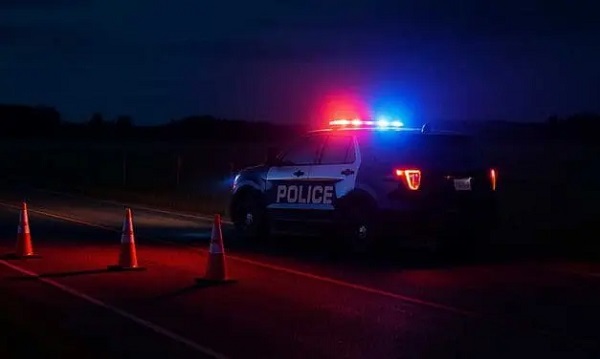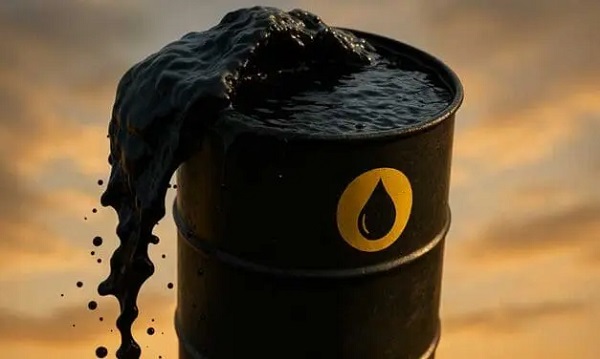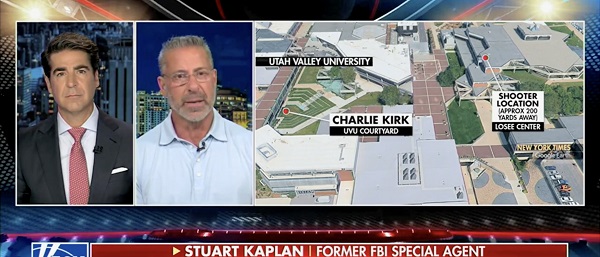Alberta
COVID19 spreading events – Premier Kenney asks Calgary and Edmonton residents to stop hosting gatherings

From the Province of Alberta
Strong public health measures are being implemented to protect the health system and limit the spread of COVID-19.
Expanded mandatory and voluntary limits on social gatherings are now in place to help reduce growing caseloads.
New COVID-19 measures
- Effective immediately, new mandatory and voluntary public health measures will help protect the health system and limit the spread of COVID-19.
- All Edmonton and Calgary residents should stop holding social gatherings within their homes and instead socialize in structured settings where it is easier to limit risk of exposure.
- The mandatory 15-person limit on social gatherings is being expanded to all communities on the watch list.
- Voluntary measures to limit cohorts to no more than three and to wear masks in the workplace unless able to safely distance are also strongly recommended for any community on the watch list, regardless of location.
- Additional measures to bolster Alberta’s public health response:
- AHS is prioritizing the hiring of about 380 additional contact tracing staff that will expand the contact tracing team to more than 1,100 people.
- To support contact tracing, all Albertans should download ABTraceTogether, Alberta’s contact tracing app.
- Alberta will also be shifting back to daily reporting of case numbers and information, including on weekends and holidays.
Latest updates
- To date, 24,684 Albertans have recovered from COVID-19.
- There are currently 6,822 active cases in the province.
- Over the last 48 hours:
- 802 new cases were identified on Nov. 4
- 609 new cases were identified on Nov. 5
- Alberta labs have now performed 1,869,192 tests on 1,305,540 people.
- There were nine additional deaths since Nov. 3, bringing the total number of COVID-19 deaths to 352.
- All zones across the province have cases:
- Calgary Zone: 2,886 active cases and 10,966 recovered
- South Zone: 398 active cases and 2,216 recovered
- Edmonton Zone: 2,819 active cases and 8,713 recovered
- North Zone: 431 active cases and 1,821 recovered
- Central Zone: 255 active cases and 914 recovered
- 33 active cases and 54 recovered cases in zones to be confirmed
- Additional information, including case totals, is online.
- There are 392 active cases and 1,631 recovered cases at continuing care facilities; 221 facility residents have died.
- School case information will be updated on Monday.
Updated contact tracing approach
- Alberta is piloting a targeted contact testing approach. This will make contact tracing faster and focus on populations at greatest risk of illness and further spreading COVID-19.
- Alberta Health Services will directly notify close contacts of confirmed COVID-19 cases in three priority groups only:
- health-care workers
- minors (parents will still be notified if their child has been exposed in a school setting)
- individuals who live or work within congregate or communal facilities
- AHS will no longer directly notify close contacts outside of these three priority groups, at this time.
- Albertans outside the priority groups who test positive will be asked to notify their own close contacts.
- AHS will continue to directly notify all positive cases of COVID-19 of their result, identify priority contacts that AHS will notify, and provide the case with guidance on notifying their own contacts.
Alberta
Equalization program disincentivizes provinces from improving their economies

From the Fraser Institute
By Tegan Hill and Joel Emes
As the Alberta Next Panel continues discussions on how to assert the province’s role in the federation, equalization remains a key issue. Among separatists in the province, a striking 88 per cent support ending equalization despite it being a constitutional requirement. But all Canadians should demand equalization reform. The program conceptually and practically creates real disincentives for economic growth, which is key to improving living standards.
First, a bit of background.
The goal of equalization is to ensure that each province can deliver reasonably comparable public services at reasonably comparable tax rates. To determine which provinces receive equalization payments, the equalization formula applies a hypothetical national average tax rate to different sources of revenue (e.g. personal income and business income) to calculate how much revenue a province could generate. In theory, provinces that would raise less revenue than the national average (on a per-person basis) receive equalization, while province’s that would raise more than the national average do not. Ottawa collects taxes from Canadians across the country then redistributes money to these “have not” provinces through equalization.
This year, Ontario, Quebec, Manitoba and all of Atlantic Canada will receive a share of the $26.2 billion in equalization spending. Alberta, British Columbia and Saskatchewan—calculated to have a higher-than-average ability to raise revenue—will not receive payments.
Of course, equalization has long been a contentious issue for contributing provinces including Alberta. But the program also causes problems for recipient or “have not” provinces that may fall into a welfare trap. Again, according to the principle of equalization, as a province’s economic fortunes improve and its ability to raise revenues increases, its equalization payments should decline or even end.
Consequently, the program may disincentivize provinces from improving their economies. Take, for example, natural resource development. In addition to applying a hypothetical national average tax rate to different sources of provincial revenue, the equalization formula measures actual real-world natural resource revenues. That means that what any provincial government receives in natural resource revenue (e.g. oil and hydro royalties) directly affects whether or not it will receive equalization—and how much it will receive.
According to a 2020 study, if a province receiving equalization chose to increase its natural resource revenues by 10 per cent, up to 97 per cent of that new revenue could be offset by reductions in equalization.
This has real implications. In 2018, for instance, the Quebec government banned shale gas fracking and tightened rules for oil and gas drilling, despite the existence of up to 36 trillion cubic feet of recoverable natural gas in the Saint Lawrence Valley, with an estimated worth of between $68 billion and $186 billion. Then in 2022, the Quebec government banned new oil and gas development. While many factors likely played into this decision, equalization “claw-backs” create a disincentive for resource development in recipient provinces. At the same time, provinces that generally develop their resources—including Alberta—are effectively punished and do not receive equalization.
The current formula also encourages recipient provinces to raise tax rates. Recall, the formula calculates how much money each province could hypothetically generate if they all applied a national average tax structure. Raising personal or business tax rates would raise the national average used in the formula, that “have not” provinces are topped up to, which can lead to a higher equalization payment. At the same time, higher tax rates can cause a decline in a province’s tax base (i.e. the amount of income subject to taxes) as some taxpayers work or invest less within that jurisdiction, or engage in more tax planning to reduce their tax bills. A lower tax base reduces the amount of revenue that provincial governments can raise, which can again lead to higher equalization payments. This incentive problem is economically damaging for provinces as high tax rates reduce incentives for work, savings, investment and entrepreneurship.
It’s conceivable that a province may be no better off with equalization because of the program’s negative economic incentives. Put simply, equalization creates problems for provinces across the country—even recipient provinces—and it’s time Canadians demand reform.
Alberta
Provincial pension plan could boost retirement savings for Albertans

From the Fraser Institute
By Tegan Hill and Joel Emes
In 2026, Albertans may vote on whether or not to leave the Canada Pension Plan (CPP) for a provincial pension plan. While they should weigh the cost and benefits, one thing is clear—Albertans could boost their retirement savings under a provincial pension plan.
Compared to the rest of Canada, Alberta has relatively high rates of employment, higher average incomes and a younger population. Subsequently, Albertans collectively contribute more to the CPP than retirees in the province receive in total CPP payments.
Indeed, from 1981 to 2022 (the latest year of available data), Alberta workers paid 14.4 per cent (annually, on average) of total CPP contributions (typically from their paycheques) while retirees in the province received 10.0 per cent of the payments. That’s a net contribution of $53.6 billion from Albertans over the period.
Alberta’s demographic and income advantages also mean that if the province left the CPP, Albertans could pay lower contribution rates while still receiving the same retirement benefits under a provincial pension plan (in fact, the CPP Act requires that to leave CPP, a province must provide a comparable plan with comparable benefits). This would mean Albertans keep more of their money, which they can use to boost their private retirement savings (e.g. RRSPs or TFSAs).
According to one estimate, Albertans’ contribution rate could fall from 9.9 per cent (the current base CPP rate) to 5.85 per cent under a provincial pension plan. Under this scenario, a typical Albertan earning the median income ($50,000 in 2025) and contributing since age 18, would save $50,023 over their lifetime from paying a lower rate under provincial pension plan. Thanks to the power of compound interest, with a 7.1 per cent (average) nominal rate of return (based on a balanced portfolio of investments), those savings could grow to nearly $190,000 over the same worker’s lifetime.
Pair that amount with what you’d receive from the new provincial pension plan ($265,000) and you’d have $455,000 in retirement income (pre-tax)—nearly 72 per cent more than under the CPP alone.
To be clear, exactly how much you’d save depends on the specific contribution rate for the new provincial pension plan. We use 5.85 per cent in the above scenario, but estimates vary. But even if we assume a higher contribution rate, Albertan’s could still receive more in retirement with the provincial pension plan compared to the current CPP.
Consider the potential with a provincial pension contribution rate of 8.21 per cent. A typical Albertan, contributing since age 18, would generate $330,000 in pre-tax retirement income from the new provincial pension plan plus their private savings, which is nearly one quarter larger than they’d receive from the CPP alone (again, $265,000).
Albertans should consider the full costs and benefits of a provincial pension plan, but it’s clearly Albertans could benefit from higher retirement income due to increased private savings.
-

 Alberta2 days ago
Alberta2 days agoAlberta deserves a police force that actually reflects its values
-

 Crime2 days ago
Crime2 days agoCharlie Kirk Killer’s Ammo Reportedly Marked With Transgender, Anti-‘Fascist’ Messages
-

 Alberta2 days ago
Alberta2 days agoOPEC+ chooses market share over stability, and Canada will pay
-

 Crime2 days ago
Crime2 days agoFormer FBI Agent Says Charlie Kirk Assassination May Have Been ‘A Professional Hit’
-

 Alberta2 days ago
Alberta2 days agoProvincial pension plan could boost retirement savings for Albertans
-

 Alberta2 days ago
Alberta2 days agoEqualization program disincentivizes provinces from improving their economies
-

 Bruce Dowbiggin2 days ago
Bruce Dowbiggin2 days agoKirk’s Killing: Which Side Can Count on the Military’s Loyalty Now?
-

 Crime2 days ago
Crime2 days agoManhunt for suspect continues in Kirk assassination investigation









